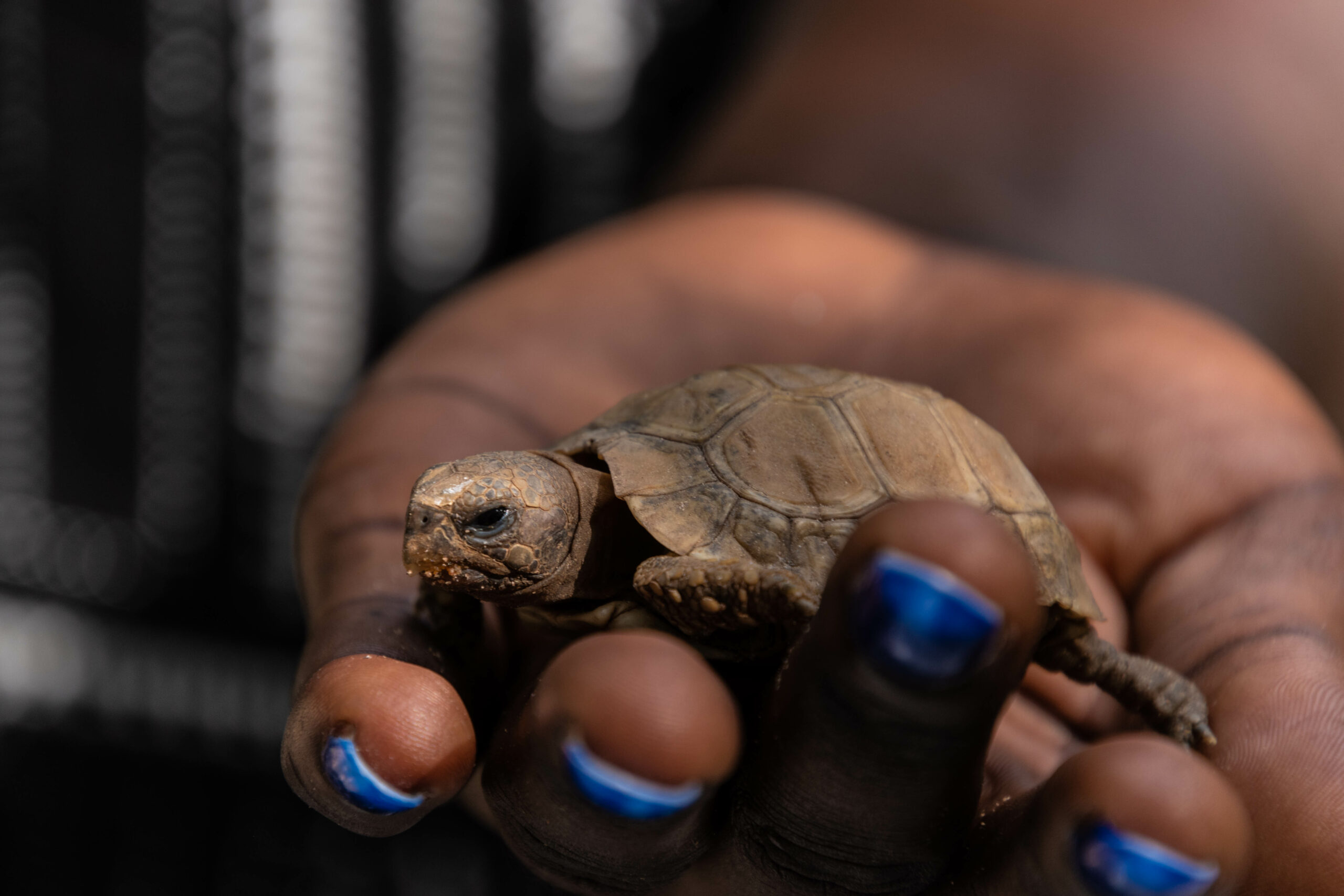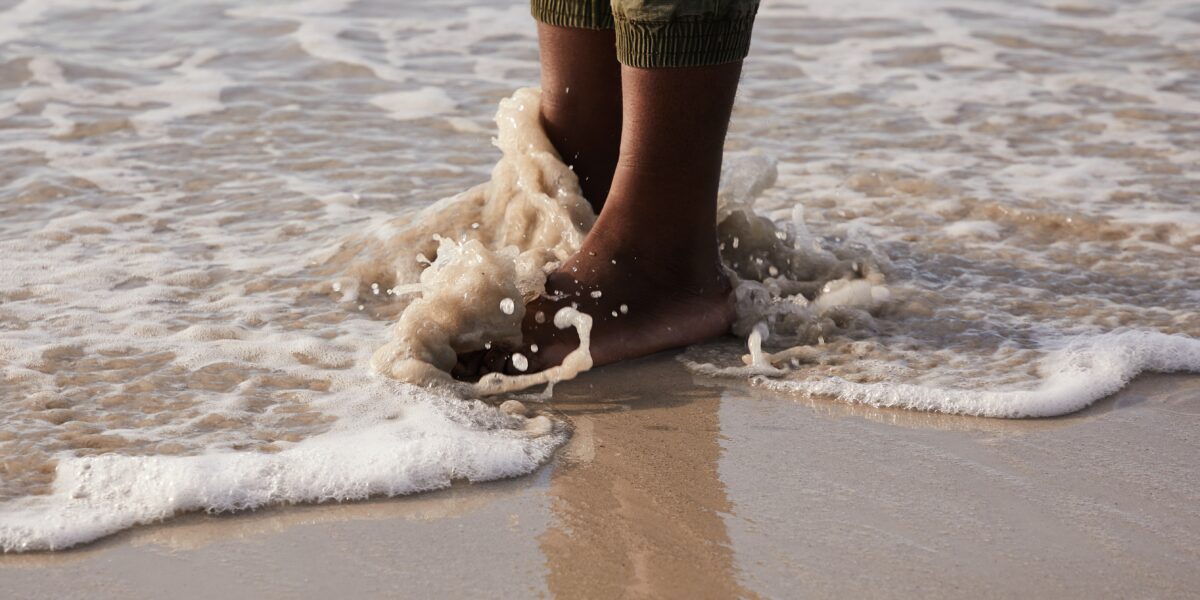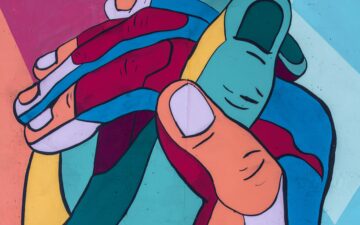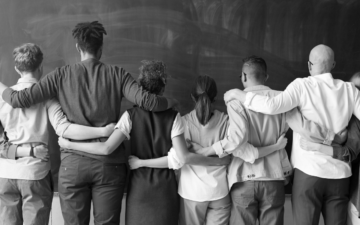Moriah Byrd is a young conservationist seeking to find her footing in a sector that lacks diverse representation. Our team invited Moriah to serve as a guest blogger to share her experiences and insight related to her budding career in marine conservation. Her blog highlights the importance of diversifying our sectors, as she was inspired by those who looked similar to her.
Building champions across all communities in the marine conservation field is critical for the preservation and protection of our ocean. Our youth, especially, must be equipped with the tools and resources needed to sustain our momentum as we fight for our planet. Read Moriah’s story below, and enjoy the latest installment of Real and Raw Reflections.
For many, the COVID-19 pandemic instigated one of the lowest points of our lives forcing us to experience immense loss. We watched as the people closest to us struggled to maintain our lifestyles. Jobs disappeared overnight. Families were separated by travel bans. Instead of turning to our usual support groups, we were isolated forcing us to experience our grief alone.
The experiences that we all faced during this pandemic were challenging enough but many people of color (POC) were forced to simultaneously experience traumatizing events. The violence, discrimination, and fear the world observed during this time was only a fraction of what POC face daily. While surviving the isolating nightmare that was COVID-19, we also continued the eternally long fight for the world to respect basic human rights. A fight that breaks down our mental capacity to exist and act as functioning members of society. However, like the people who came before us, we find ways to move forward. Through the bad, we found a way to not only improve upon the old but to support each other during this challenging time.
During these trying times, the marine conservation community acknowledged a need to support Black, Indigenous, and other people of color as well as other groups detrimentally affected by Western culture. Through social media and other forms of socially distanced communication, marginalized individuals congregated to create new mechanisms to educate, engage, and support marginalized individuals not only within marine science but our personal lives as well.
After reading Moriah Byrd’s statement above, it’s clear that social media has raised awareness of the plights people of color face. However, when asked whether she feels social media–or the media in general–depicts people of color and young people in the best light she had a very interesting response. Moriah states that it is especially critical for marginalized communities to identify media spaces run by marginalized leaders so that your own narrative can be created by divulging from mainstream media. It often doesn’t depict us in the best light, and creates a convoluted perspective of our communities. We hope Moriah’s suggestion is taken seriously, especially during the times of the pandemic, as itself has presented several problematic issues some of which Moriah highlights below.
When the pandemic first started, I, like most people, struggled to transition to an online experience and mourned my lost summer internship. But I also sought refuge from the violent images and hate speech plastered over the social media that I once saw as an escape. To break away from these images I began following marine conservation pages on Twitter. By chance, I came across an amazing community of black marine scientists who were talking about the current social climate and how it affected them. Although at the time I didn’t participate, reading through the tweets of people who looked like me and were in the same field as me, I realized that I wasn’t going through this experience alone. It gave me the strength to move forward to new experiences.
Black in Marine Science (BIMS) is an organization that provides support to black marine scientists. They start by educating the budding youth on understanding the immeasurable pathways within ocean science. It provides support to the students currently navigating the challenges at the beginning of their unique journey. And finally, it provides continual support to those already settled in their career who need an organization that understands the struggle of being black in the marine science field.
For me, the most impactful part of this organization is the representation. For most of my life, I have been told that I am unique for aspiring to be a black marine scientist. I am often given an incredulous look as if there’s no way someone like me could achieve in such a competitive and challenging field. My goal of intertwining empirical research, social justice, and policy is dismissed for being too ambitious. However, as I began to interact with BIMS, I observed the breadth of expertise of black marine scientists.

Black in Marine Science hosted Dr. Letise LaFeir, a Senior Advisor at NOAA who specializes in the intersection of marine biology and policy, to have a conversation about the Ocean Championship. As Dr. LaFeir described her journey, I kept hearing my past, present, and future in her story. She discovered the ocean by watching educational shows on Discovery Channel and PBS in the same way I fed my interests through programs on these channels. Likewise, I participated in internships throughout my undergraduate career to develop my interests in marine science like Dr. LaFeir and the other speakers. Lastly, I saw my future as a Knauss fellow. I was empowered seeing these women who experienced many of the same trials and tribulations as myself, achieve my dreams. This experience gave me strength knowing that I was on the right path and that there were people who could help along the way.
Since discovering BIMS, I have been motivated to accomplish my own goals. As I begin my own mentorship journey, one major goal is to return what was given to me by becoming a mentor for other minorities in marine science. Likewise, I aim to improve support systems between my peers. Furthermore, I hope that the marine conservation community is equally inspired. By establishing partnerships with organizations such as BIMS, the marine conservation community can learn how to best support underrepresented people. Through these partnerships, I hope to see more pathways for opportunities in marine conservation geared towards underrepresented individuals. These pathways are important support systems for underrepresented individuals who because of circumstances would not be afforded these opportunities. The significance of these pathways is evident in students like myself. Through the marine pathways program offered by The Ocean Foundation, the entire marine conservation space has been opened to me, allowing me to gain new skills and make new connections.
We are all Ocean Champions, and with this responsibility, we must adapt ourselves to be better allies against inequities. I encourage us all to look within ourselves to see where we can offer support for those burdened with additional challenges.
As mentioned, Moriah’s story showcases the importance of diversity across our sector. Connecting and building relationships with those who looked like her was critical to her development, and has provided our space with a brilliant mind that we likely would have lost. As a result of those relationships, Moriah was afforded the opportunity to:
- Gain access to resources critical for her growth and development;
- Receive guidance and mentorship as a result of the connections formed;
- Understand and gain exposure to the challenges she would face as a person of color in the the marine community;
- Identify a career path forward, that includes opportunities she never knew existed.
Black in Marine Science has obviously played a role in Moriah’s life, but there are many other Moriah’s in our world. The Ocean Foundation would like to encourage others to support BIMS, as TOF and other groups have done, because of the critical work they do and individuals–like Moriah–and generations they inspire!
Our planet rests on the shoulders of our youth to continue what we started. As Moriah said, it is our responsibility to adapt and become allies against inequities. TOF challenges our community and ourselves to build ocean champions across all backgrounds, to better understand and support the communities we serve.






